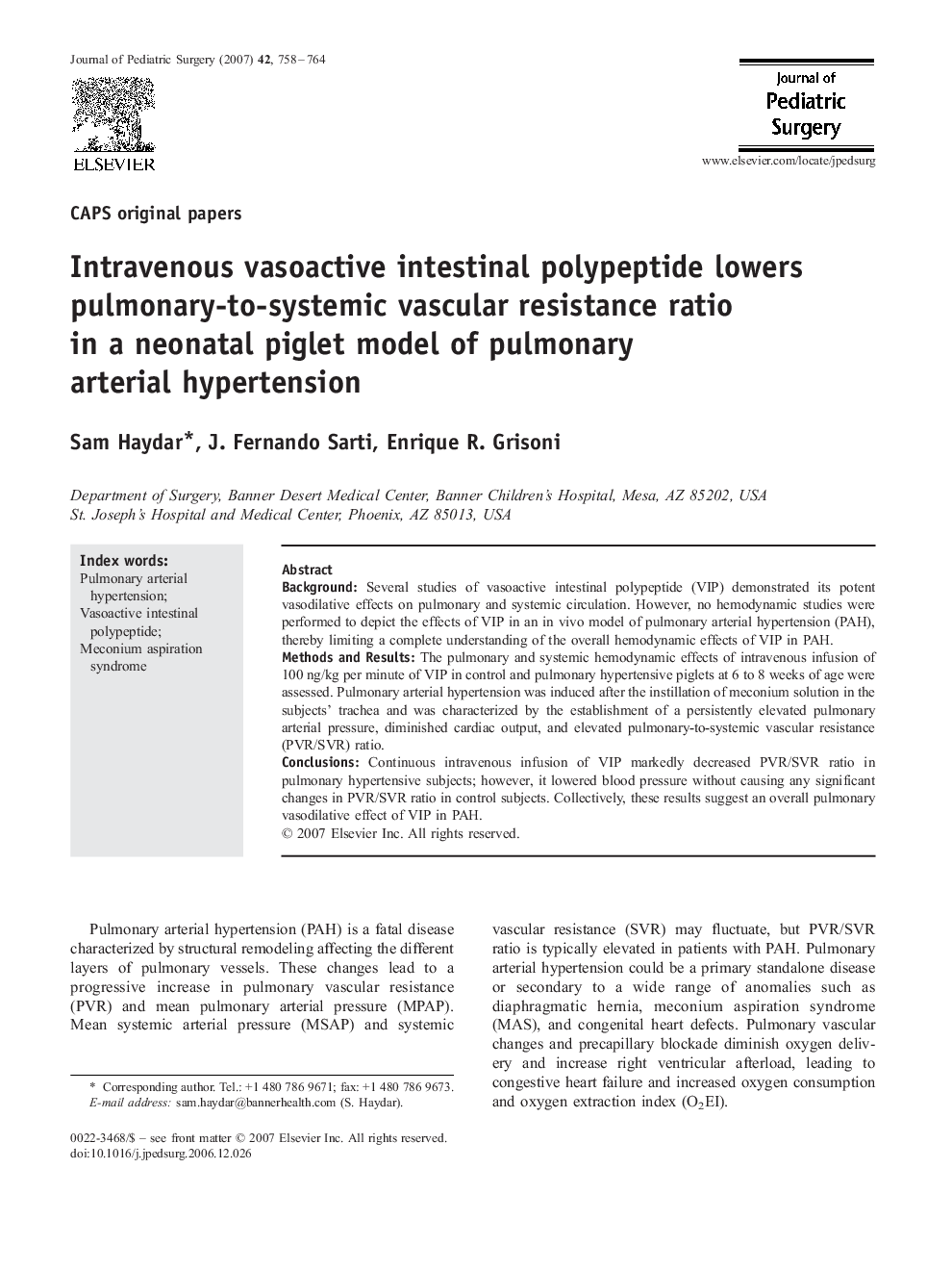| Article ID | Journal | Published Year | Pages | File Type |
|---|---|---|---|---|
| 4159584 | Journal of Pediatric Surgery | 2007 | 7 Pages |
BackgroundSeveral studies of vasoactive intestinal polypeptide (VIP) demonstrated its potent vasodilative effects on pulmonary and systemic circulation. However, no hemodynamic studies were performed to depict the effects of VIP in an in vivo model of pulmonary arterial hypertension (PAH), thereby limiting a complete understanding of the overall hemodynamic effects of VIP in PAH.Methods and ResultsThe pulmonary and systemic hemodynamic effects of intravenous infusion of 100 ng/kg per minute of VIP in control and pulmonary hypertensive piglets at 6 to 8 weeks of age were assessed. Pulmonary arterial hypertension was induced after the instillation of meconium solution in the subjects' trachea and was characterized by the establishment of a persistently elevated pulmonary arterial pressure, diminished cardiac output, and elevated pulmonary-to-systemic vascular resistance (PVR/SVR) ratio.ConclusionsContinuous intravenous infusion of VIP markedly decreased PVR/SVR ratio in pulmonary hypertensive subjects; however, it lowered blood pressure without causing any significant changes in PVR/SVR ratio in control subjects. Collectively, these results suggest an overall pulmonary vasodilative effect of VIP in PAH.
